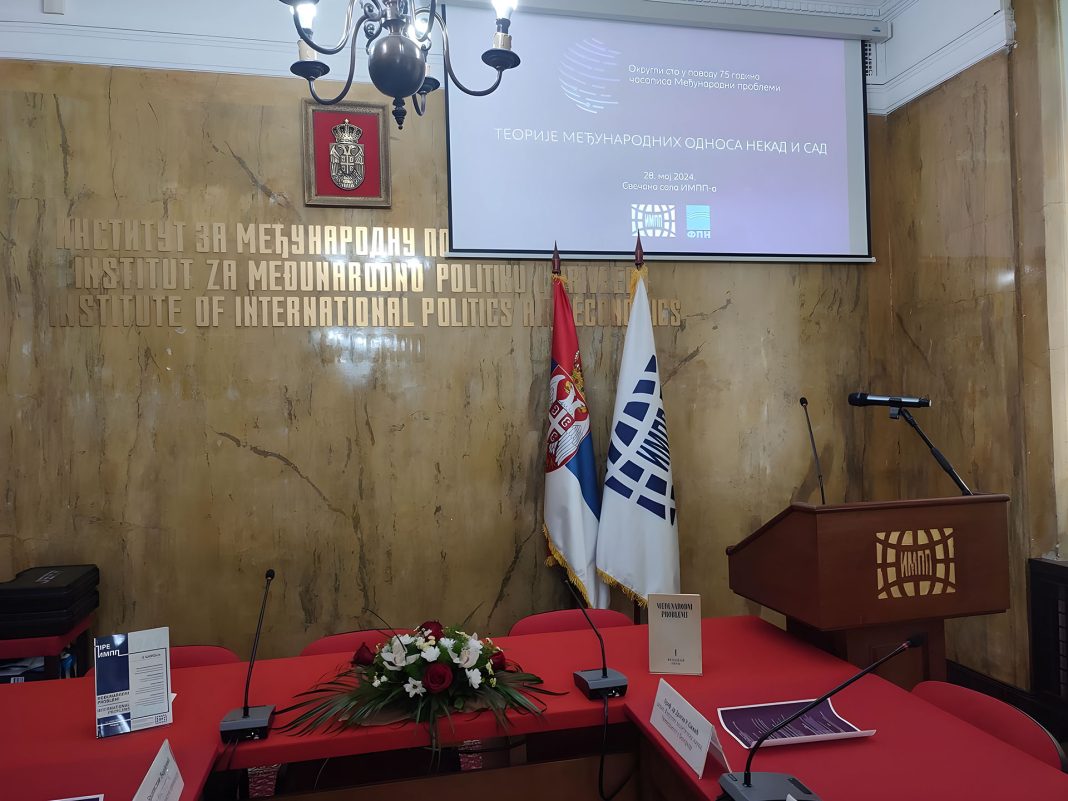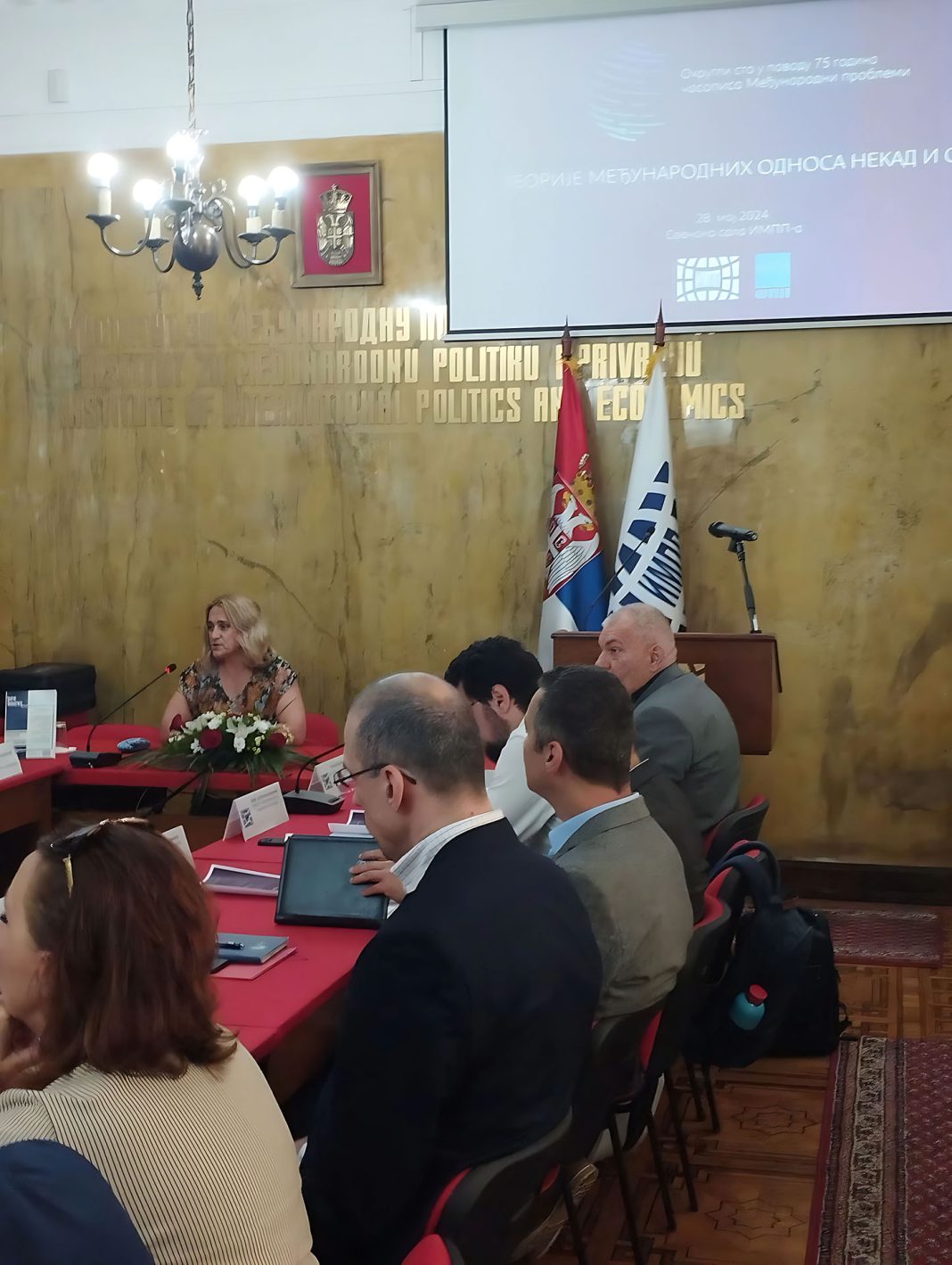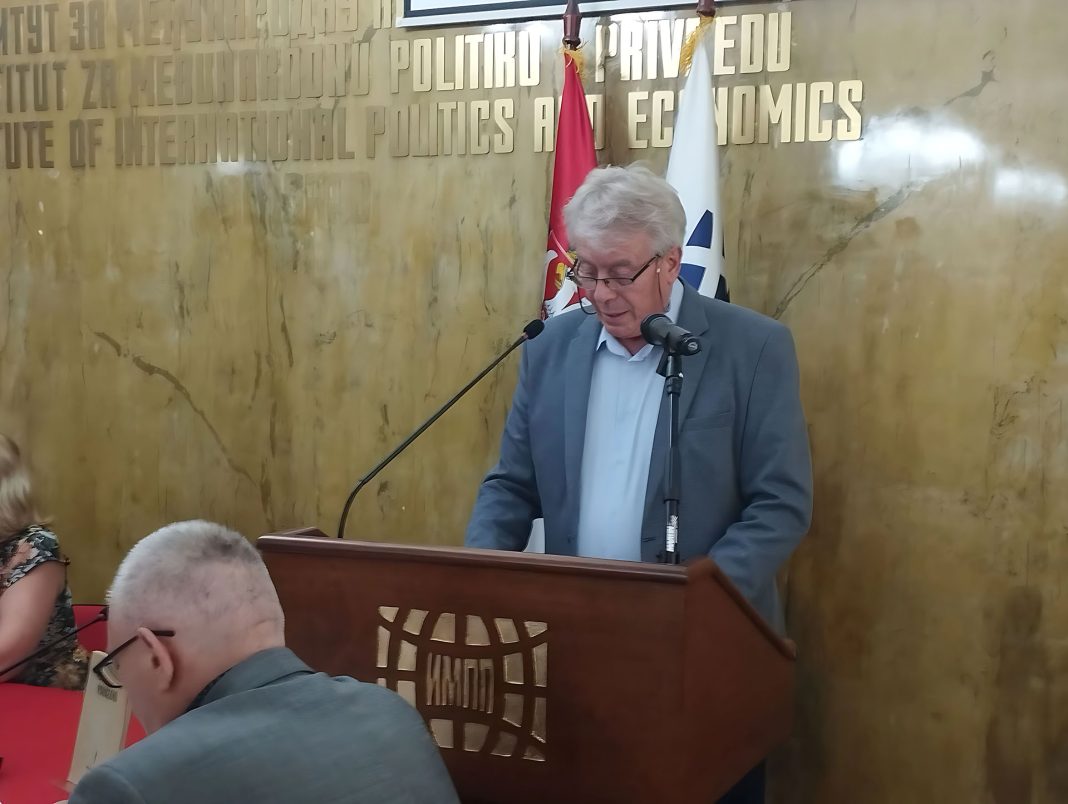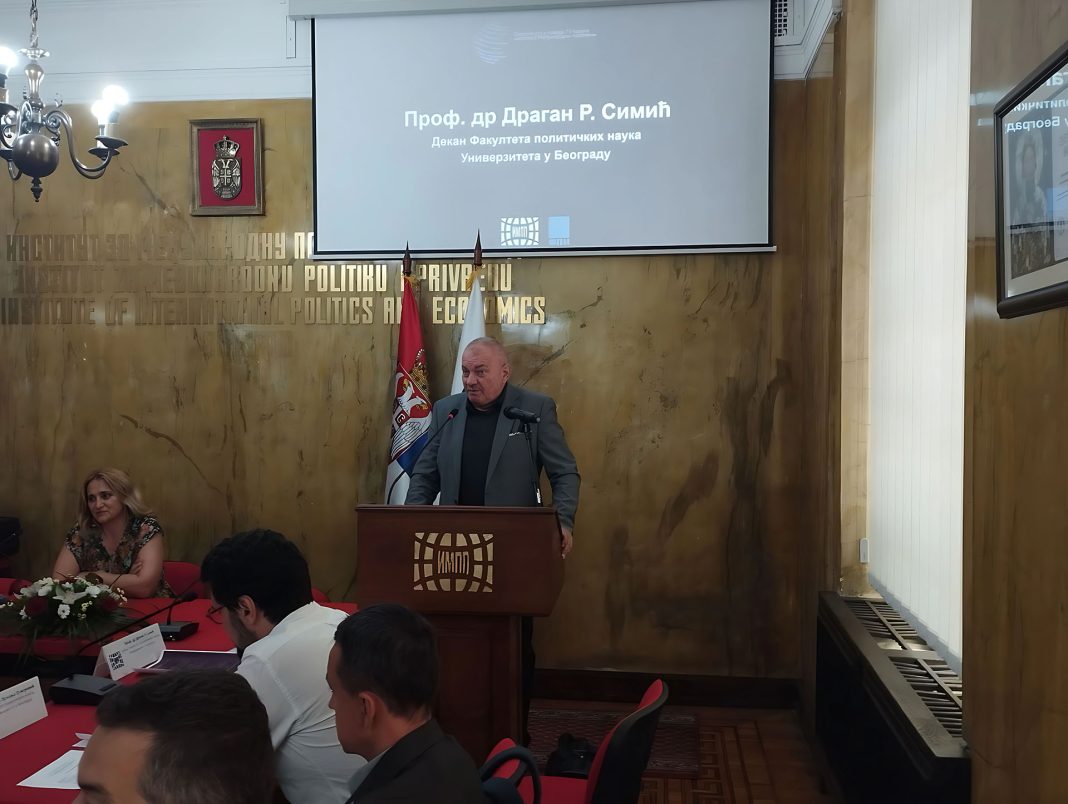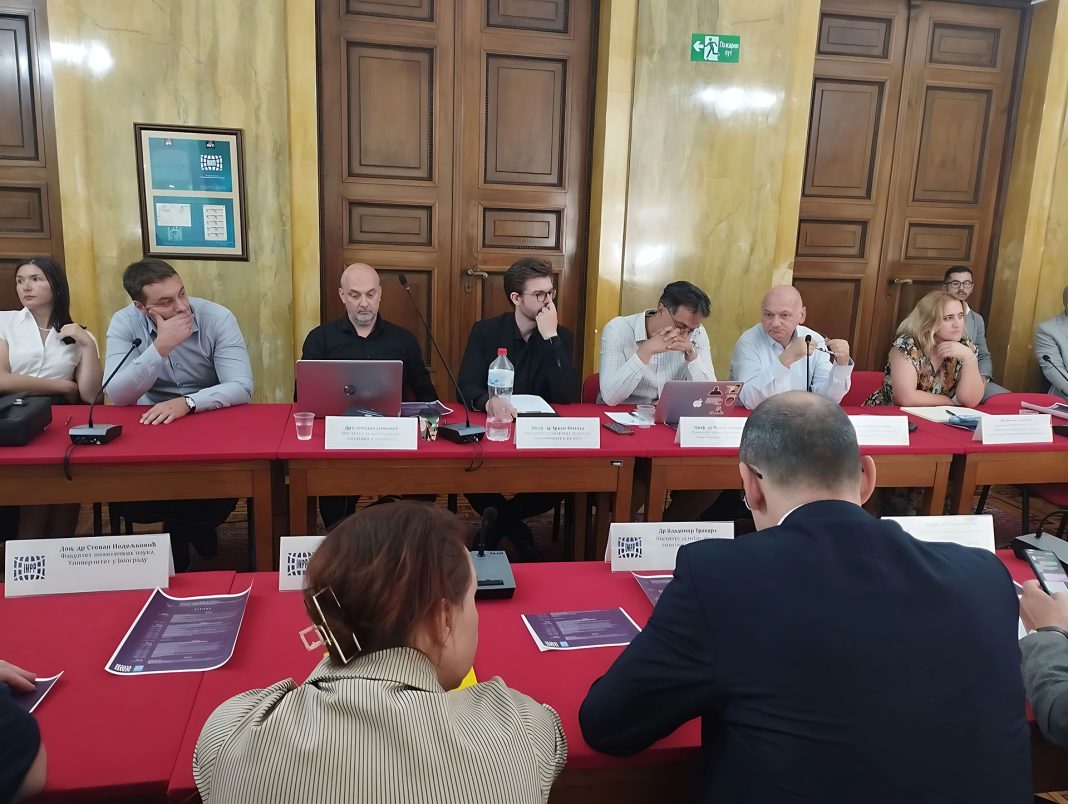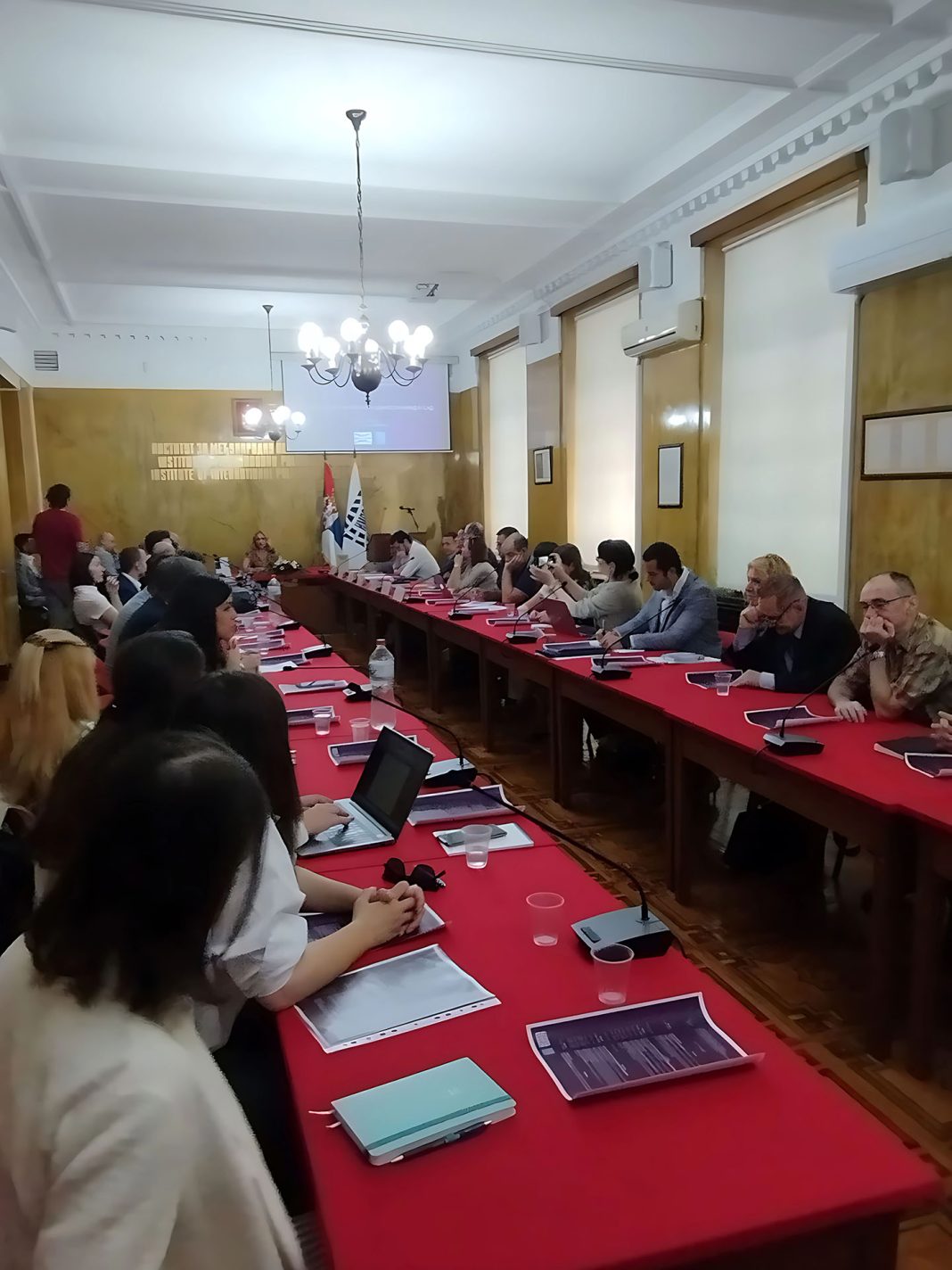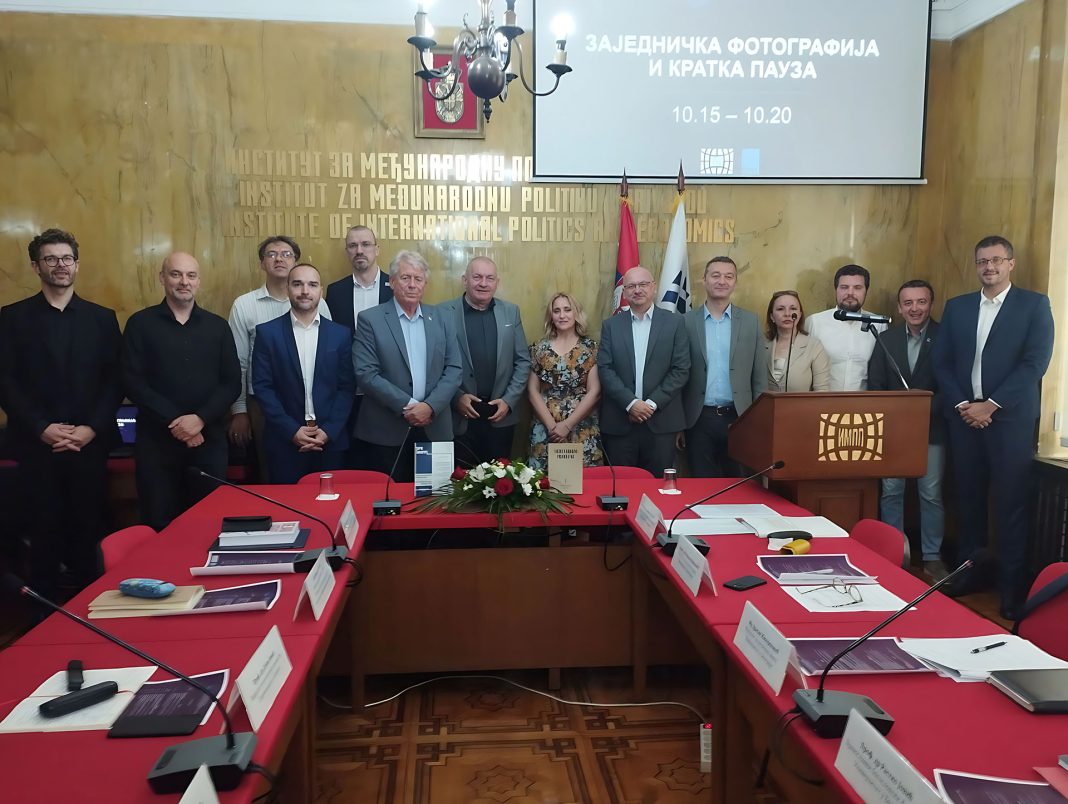The round table “Theories of International Relations Then and Now,” held on the occasion of the 75th anniversary of the esteemed journal International Problems, was a resounding success. The Institute of International Politics and Economics and the Faculty of Political Sciences, University of Belgrade, organized this scholarly event.
The gathering commenced with insightful speeches by Prof. Branislav Đorđević, director of the Institute of International Politics and Economics, Prof. Dragan R. Simić, dean of the Faculty of Political Sciences of the University of Belgrade, and Dr. Ivona Lađevac, deputy director of the Institute of International Politics and Economics and editor-in-chief of the journal International Problems.
Prof. Branislav Đorđević underscored the pivotal role of the journal International Problems in shaping the Serbian and Yugoslav science of international relations. He proudly announced that the journal has been recognized аs the M23 journal category from the Ministry of Science, Technological Development and Innovation of the Republic of Serbia, placing it at the forefront of Serbian scientific periodicals in the field of political science and law. “Anniversaries like the one we are celebrating today are a testament to the maturity of scientific research in Serbia and the unwavering dedication of researchers of the Institute of International Politics and Economics,” Professor Đorđević concluded.
Prof. Dragan R. Simić wholeheartedly congratulated the Institute of International Politics and Economics on this jubilee, adding that the Faculty of Political Sciences is also proud of this journal and its authors. “Many important ideas that were later translated and articulated into foreign policy programs and strategic determinations of the then society, of the then Yugoslavia, actually originated in the minds of scientists, researchers, and collaborators at this Institute,” stressed Professor Simić.
Dr. Ivona Lađevac thanked her colleagues from the Faculty of Political Sciences of the University of Belgrade, the Faculty of Political Sciences of the University of Zagreb, and the Faculty of Orthodox Theology of the University of Belgrade for their response. Dr. Lađevac presented the idea of the organizers that the first panel should be dedicated to the theoretical presentation of international problems, while the idea of the second panel should be to introduce new theories represented in international relations today – theories of religion in international relations. The working part of the meeting continued according to this schedule.
The first panel, “Theoretical Presentation of the International Problems,” consisted of presentations on topics from the American foreign policy doctrine (America first concept), the purpose of international relations theories & the balance of power concept in the 21st century, as well as the theory of European integration and the concept of de-Europeanization in the EU enlargement policy. The panel participants were Prof. Dragan R. Simić (Faculty of Political Sciences, University of Belgrade), Dr. Vladimir Trapara (Institute of International Politics and Economics), Assoc. Prof. Stevan Nedeljković and MSc Dragan Živojinović (Faculty of Political Sciences, University of Belgrade), Dr. Žaklina Novičić (Institute of International Politics and Economics) and Dr. Miloš Petrović (Institute of International Politics and Economics). The panel moderator was Prof. Nemanja Džuverović, vice dean for scientific research at the Faculty of Political Sciences, University of Belgrade.
The second panel, “Religion in International Relations,” consisted of presentations on relations between theocratic and liberal approaches in international relations, the international politics of the Holy See, Orthodoxy in international relations (in the context of Russia, Ukraine, and North Macedonia), and faith in international relations. Prof. Dejan Jović (Faculty of Political Sciences, University of Zagreb), Prof. Hrvoje Špehar (Faculty of Political Sciences, University of Zagreb), Prof. Marko Veković (Faculty of Political Sciences, University of Belgrade), Dr. Vladimir Trapara (Institute of International Politics and Economics), Prof. Rastko Jović (Faculty of Orthodox Theology, University of Belgrade) and Dr. Slobodan Janković (Institute of International Politics and Economics) addressed these topics. The panel was moderated by Dr. Miloš Petrović, research fellow of the Institute of International Politics and Economics and secretary of the journal International Problems.


